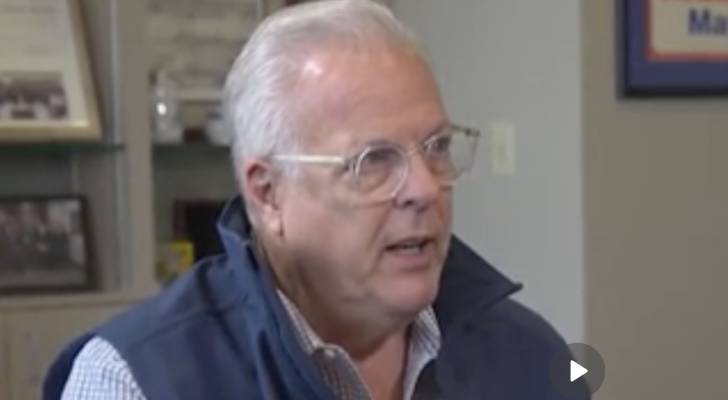
Jim Ross, mayor of Arlington, Texas, was furious when he learned his city was losing millions of dollars yearly because of a real estate loophole allowing private developers to avoid paying property taxes.
"I think it’s inappropriate at best. It’s underhanded," Ross said to CBS News. "I was pissed. I still am."
Don’t miss
- I’m 49 years old and have nothing saved for retirement — what should I do? Don’t panic. Here are 5 of the easiest ways you can catch up (and fast)
- Thanks to Jeff Bezos, you can now become a landlord for as little as $100 — and no, you don’t have to deal with tenants or fix freezers. Here’s how
- Gain potential quarterly income through this $1B private real estate fund — even if you’re not a millionaire. Here’s how to get started with as little as $10
The controversy centers on failed negotiations involving a Dallas-based real estate developer called TDI and the Arlington Housing Finance Corporation (HFC).
The prospective deal would have allowed the developer to claim a tax exemption for converting the Jefferson North Collins apartment complex into affordable housing.
Although the city rejected the proposal, the developers secured approval in the small Texas town of Pecos, allowing them to forgo taxes on the Jefferson North property, hundreds of miles away.
Ross said the arrangement is costing his city $1.7 million of lost property taxes.
“My first question was, what in the world are they doing,” he said. “What makes them think that they know better than the city of Arlington what this community needs.”
How the deal unfolded
The Pecos HFC approved the deal with the Dallas-based real estate developer.
Because HFCs can legally operate beyond the boundaries of the governments that created them, Pecos’ HFC quickly expanded its reach and approved several real estate deals across North Texas.
One of them is the complex in Arlington, which has been renamed Zenith. And, by law, the owners don’t even need to reduce any of the residents’ rents to meet the HFC affordability criteria — the only requirement is that at least half the tenants in the complex have a household income below $88,000.
The legality of these cross-jurisdictional operations has been questioned. In the meantime, the practice has spread. Even as HFCs operate far outside their original borders, more small governments have embraced the "travelling HFC" to raise money.
Read more: Want an extra $1,300,000 when you retire? Dave Ramsey says this 7-step plan ‘works every single time’ to kill debt, get rich in America — and that ‘anyone’ can do it
What are Housing Finance Corporations (HFCs)?
HFCs intend to support affordable housing development for low-income communities.
They can issue bonds, offer property tax exemptions, and provide other financial incentives in exchange for long-term revenue agreements with developers.
In many cases, HFCs partner with private developers to "own" properties on paper. They allow developers to claim public tax exemptions while operating as a for-profit business.
Unlike city councils or other public agencies, HFCs are often not required to hold public meetings or disclose detailed records. As a result, it’s challenging to track the amount of affordable housing built.
Critics say the consequences are significant. Every project that shifts onto an HFC’s books removes valuable properties from the tax base, depriving cities of crucial revenue for public services like schools, emergency response and infrastructure repairs.
The CBS News Texas I-Team in the area found that Pecos’ HFC has approved similar deals across North Texas — in Fort Worth, Grand Prairie, Lewisville, Haltom City and Azle — amounting to more than $500 million in forfeited taxes.
The impact on residents
When cities lose primary sources of tax revenue, the burden can shift to residents. Homeowners and small businesses may face higher tax bills, while public services — from school funding to street repairs — may see cutbacks.
Across Texas, local governments are increasingly sounding alarms about HFCs being used to shield private developments from taxes.
Officials are now calling for state lawmakers to reform the system. The loophole could continue to drain city budgets when many communities struggle to make ends meet.
"In hindsight, it’s gonna be one of the greatest frauds put on the Texas taxpayers — the introduction of this program and how it’s being abused," said Texas Rep. Gary Gates.
What to read next
- Don’t have the cash to pay Uncle Sam in 2025? You may already be eligible for a ‘streamlined’ handshake with the IRS — here’s how it works and how it can potentially save you thousands
- Here are 5 ‘must have’ items that Americans (almost) always overpay for — and very quickly regret. How many are hurting you?
- Robert Kiyosaki warns of a ‘Greater Depression’ coming to the US — with millions of Americans going poor. But he says these 2 ‘easy-money’ assets will bring in great wealth. How to get in now
This article provides information only and should not be construed as advice. It is provided without warranty of any kind.


